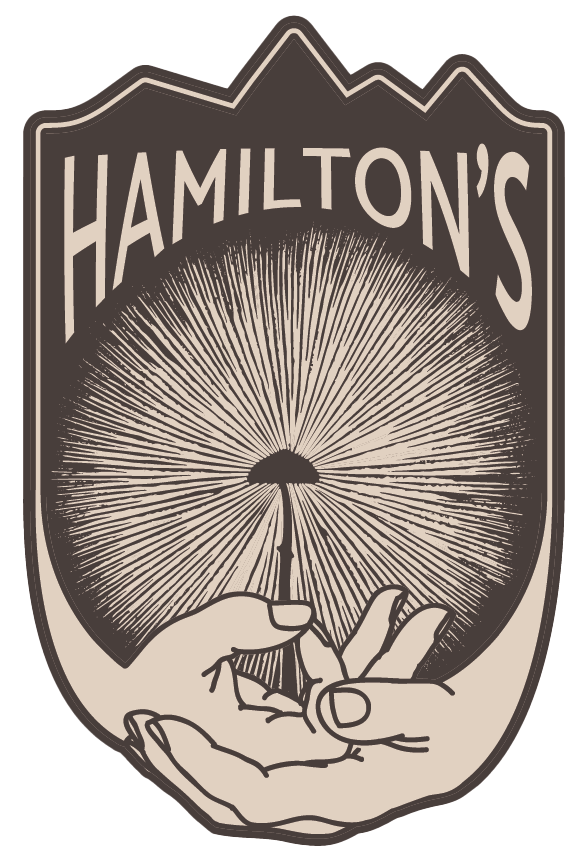Beta Glucans in Mushrooms
The way in which mushrooms have been medicinally used for more than a millennia, dating back to ancient civilizations including Greece, Rome, China, and India, is an ongoing debate. In 1991, Otzi the “Ice Man” Mummy was discovered in the Italian Alps with two mushrooms with strings running through through them in his possession, said to be 5,300 years old. He was carrying Fometopsis betulina the Birch polypore and Fomes fomentarius the tinder conk. Due to the strings, and the variety researchers think that he was making tea (hot water extracts) and reusing the pieces.
Mushrooms are often recognized for their dietary and psychotropic effects; recent studies are revealing the biological mechanisms behind their health advantages, with beta-glucans playing a crucial role in many of these benefits. If you searched PubMed for "mushroom and health" in 2021, you would find over 2,400 publications; 80 of these were reviews published from 2020 onwards. This surge in research interest is evidence of the growing fascination among nutritionists, biologists, and medical professionals regarding the health-promoting properties of mushrooms.
Robert Dale Rogers, herbalist and author of many medicinal mushroom books told us in an interview for a film "Beta-glucans are immune modulating and anti-inflammatory, and thats the only thing medicinal mycologists can agree on!"
Where are Beta Glucans found in mushrooms?
Beta-glucans are polysaccharides that constitute a significant portion of mushroom composition and can be found in the cell walls of fungi and yeast. They are long or short-chain polymers of glucose subunits with specific linkages, primarily β-1,3 and β-1,6 linkages. These linkages give rise to the linear and branching structures of beta-glucans. These compounds are often extracted from mushroom cell walls for use in dietary supplements and medicinal products.
How Do They Work?
Beta-glucans are not fully digested in the human gastrointestinal tract. They reach the bowel largely unchanged. At the mucosal surface of the bowel, beta-glucans form a gel, which affects the absorption of biliary salts and regulates the intestinal microbiota and stimulates their production in the liver. This, in turn, promotes the utilization of circulating cholesterol, lowering its levels in the blood. Beta-glucans from cereals (such as oatmeal) have been shown to lower cholesterol, triglycerides, and blood pressure in various studies. They promote bowel transit and may offer protection against conditions like irritable bowel syndrome, diverticular diseases, and colon cancer. I call it the Mucosal Effect!

Pleurotus ostreatus
Modern Uses and Impact
Beta-glucans ability to regulate the immune system and influence metabolic and gastrointestinal functions is being noticed. For example, research revealed that lentinan, a beta-glucan in mushrooms, can reduce endotoxin lethality in mice. Also, beta-glucans from Saccharomyces cerevisiae have been shown to protect against endotoxin-induced shock and organ injury in rats.
- Extracts from Agaricus blazei have been found to reduce cytokine levels in the blood of healthy human volunteers after oral intake. Ongoing studies explore beta-glucans in autoimmune diseases, such as inflammatory bowel disease and Crohn's disease.
- Pleurotus ostreatus (or oyster mushroom), one of the most common edible mushrooms worldwide, reported beneficial effects on glucose and lipid metabolism, and blood pressure. (1)(2)(3)
- Lentinan has shown anti-viral effects by inactivating viruses and regulating innate immune responses. This led to suggestions that mushroom-derived beta-glucans could be developed as potential therapies against viruses like SARS-CoV-2 (Covid). (4)
- Shiitake mushroom, maitake mushroom, reishi mushrooms, shimeji and oyster varieties have the richest amount of beta-glucans.
Here's a big one… cancer treatment.
Beta-glucans have been a promising alternative to conventional chemotherapy. However Lentinan, a specific type of mushroom-derived β-glucan, has shown promise in extending the survival of gastric cancer patients when added to standard chemotherapy. While they may not have direct cytotoxic effects on cancer cells, they exhibit adjuvant activity when used alongside anti-tumor monoclonal antibodies, leading to greater tumor regression in mice compared to single treatments. Clinical trials are currently underway to evaluate the efficacy of beta-glucan extracts in treating various types of cancer. (5)
To wrap it up…
While the science of beta-glucans is still evolving, their potential health benefits are becoming increasingly clear. From immune system modulation to cancer treatment and metabolic health, beta-glucans derived from mushrooms and other sources are showing remarkable promise in improving human well-being. As ongoing research continues to unveil their full potential, we can expect to see more applications and therapies harnessing the power of these remarkable compounds.
If you are curious and want to see if functional mushrooms are right for you, CLICK HERE and use discount code BG10 for 10% off Agarikon and 100g bags. Code expires on Saturday Oct 7, 2023.


